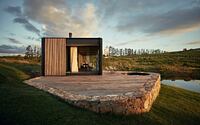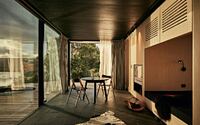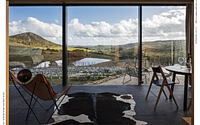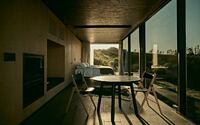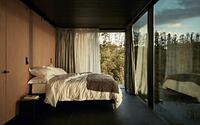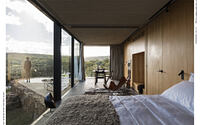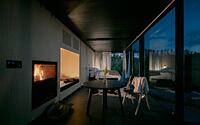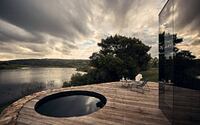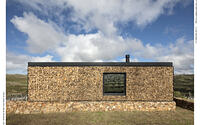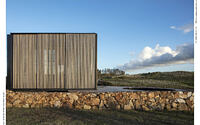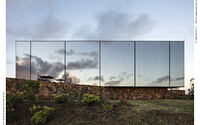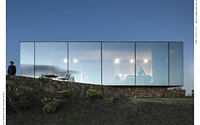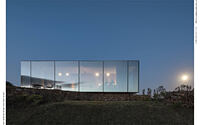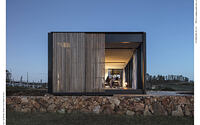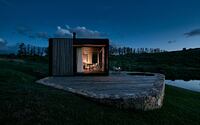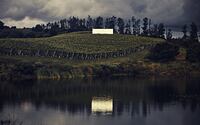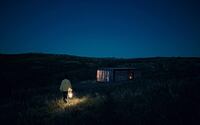Sacromonte Landscape Hotel by MAPA

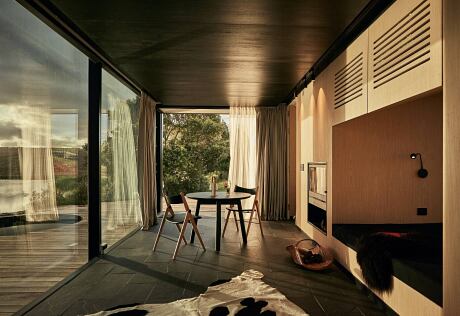
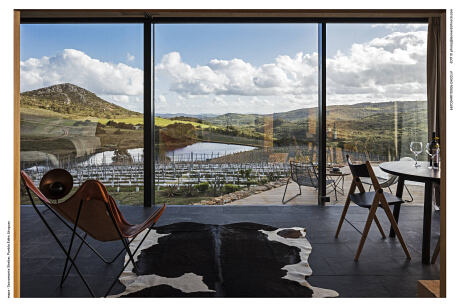
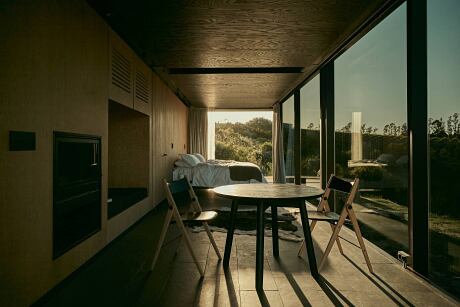
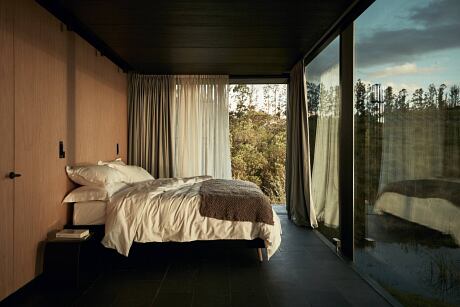
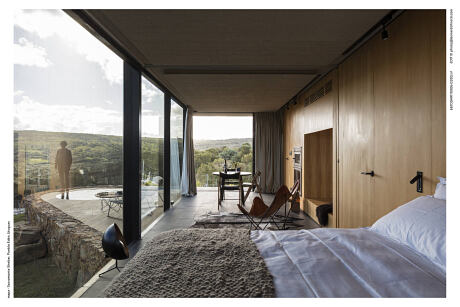
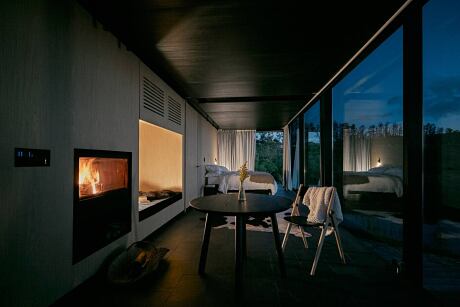
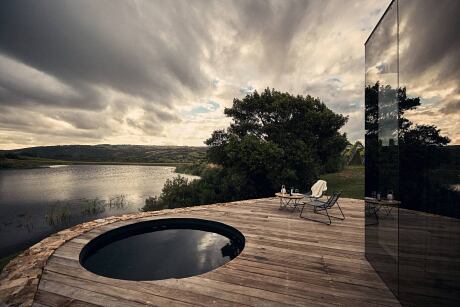
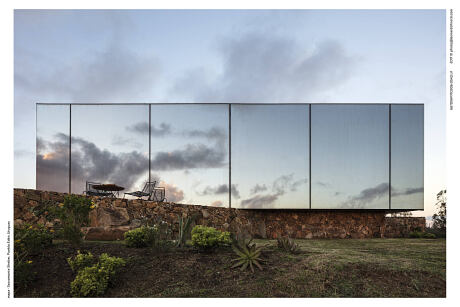
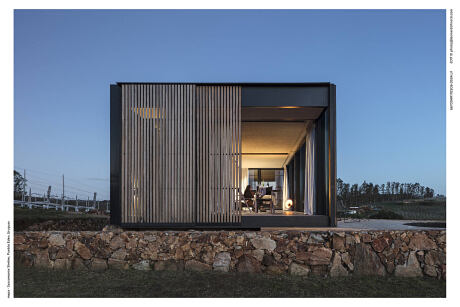
Description
Sacromonte is an invitation to approach the world of fine wines in a remote natural setting, where sophistication and the rudimentary coexist in a new experience of the landscape.
Its lands, stretching over 250 acres, are nestled in a privileged location: the wild sierras of eastern Uruguay. At an equal distance between Punta del Este, José Ignacio, and Pueblo Garzón, it is a unique ecosystem to be enjoyed with a singular spirit.
Sacromonte as a field for experiences
Sacromonte is landscape. It is a field of relational forces, of ancient intensity and new impulses that jointly create a new, unprecedented entity. Thus, nature, production, infrastructure, and the palpable energy of the site configure a field of stimuli to be discovered; a field of experiences.
In this idyllic landscape, young vineyards adapted to the unique characteristics of its soil, interact with a hill from which the entire spot may be observed, with its lush grasslands, natural spring water reservoirs, and several streams that run through the valley densely surrounded by pristine vegetation. It is the contemporary explorer who will rewrite its own script, costarring the landscape while walking through a wide range of scenarios.
Sacromonte (Crafted Wines) will be part of a young constellation of small Uruguayan wineries of recent international recognition as producers of small quantities of premium wines. A unique feature of Sacromonte’s vineyards is the terroir, a result of its location in the wild sierras of Maldonado, with steep hillsides facing north and its rocky soils, rich in mica schist and granite.
With the comfort and sophistication of urban hotels, Sacromonte Landscape Hotel substitutes the concept of contiguous rooms with exclusive cabins scattered through the landscape. In addition, elevators and corridors are replaced by winding paths. A total of 13 cabins (4 shelters and 9 landscape shelters) are disseminated over the Sacromonte topography, seeking the best locations. A winery with a restaurant set among the vineyards, a reception area with a wine store, and a hilltop terrace for wine tasting put the finishing touches to the hotel facilities.
At the same time, a network of elements that amplify the experience of the landscape is in place, intended to enhance unexplored spots: an open chapel among the vineyards and paths, trails, and tracks activated by programs for the enjoyment of wine, culture, and art.
Last but not least, Sacromonte is a sustainable venture, which includes the environmental dimension in all its decisions. Prefab buildings, low-emissivity glass, living roofs, the use of local materials for onsite works, an organic vegetable garden, electric cars for transport, renewable energy, the rational use of fertilizers, the use of spring waters, and the eco-friendly wastewater treatment system are a few of the strategies that make Sacromonte a field of harmoniously coexisting events.
Sacromonte Shelters
A prefab experience of the landscape
Sacromonte exclusive rooms start in a factory in the metropolitan area of Montevideo. It is a speedy process of fewer than 10 weeks, after which they are transported over more than 200 km in a single day. Leaving the city behind, the rooms cease to exist as such and become landscape shelters. They are no longer objects but rather evolve into experiences.
The modular metal structure, a blend of steel framing and light steel framing, gives preference to constructive simplicity and the efficient use of materials. Finishing is simple and expressive. Materials are used in harmony with their nature.
In sharp contrast, the walls supporting the prefab modules are built onsite with local stones and take diverse organic shapes adapted to each placement. Circular pools, composing a new sensory experience of the landscape, complement them.
The space is organized in a sequence of longitudinal layers of different thicknesses, between which daily life develops. The rear plane of the cabins is composed by piles of wood logs, reminiscent of woodpiles typical of lifestyles in natural settings.
The following layer hosts the wet areas such as the bathroom and the kitchen, a fireplace, and a reading nook ideal for just reading or sleeping a siesta, sheltered by the landscape. Separated by a wood plane, follows the main space containing the bedroom, living and dining room, which opens fully onto the landscape it is inserted in and of which it is an integral part.
The façade is composed of a sheet of one-way mirrors, covering the cabin with an almost magical effect, creating a tense limit between both the camouflage and the rhythm of nature and the unreal sheen of technology and modern times.
Photography by Leonardo Finotti
Visit MAPA
- by Matt Watts